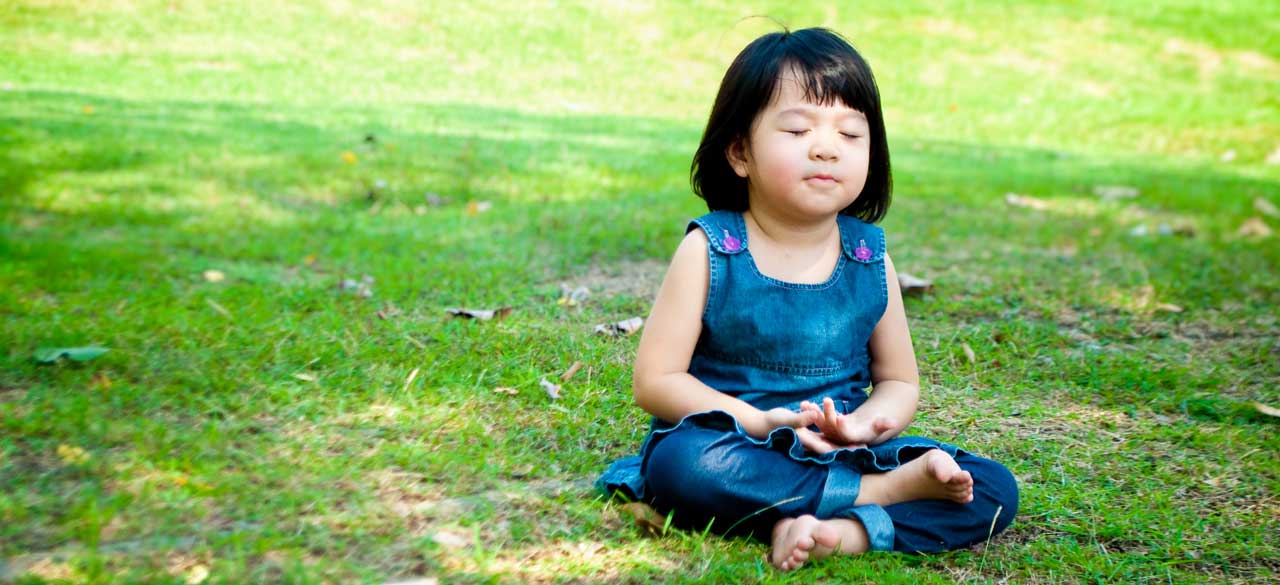Being mindful means slowing down to acknowledge the blessings in your life, being fully present in each moment, and being grateful for the things that you have and experience. The practice of mindfulness can go a long way toward helping a person manage stress, stay positive, and be joyful through life’s challenges.
Learning Mindfulness
For an adult who is just learning mindfulness, it can be a bit difficult to change deeply ingrained habits and thought patterns, though it is definitely possible. The process can be hastened by the practices of meditation, deep breathing, and yoga.
Starting a child out early with mindfulness teachings, without having to fight against a lifetime of deep-seated negative habits, can create the foundation for a lifetime of positive thinking, low stress, and joy. Here are some ways to help your child learn mindfulness.
- Practice it yourself. Children learn best by example, so it’s important to practice mindfulness yourself if you want your child to learn it. As much as you can, be present in the moment, be verbally grateful for things throughout the day, and use techniques that keep you calm and centered.
- Help your child explore each sense. Use simple activities that teach your child to be mindful of his senses. For instance, have him close his eyes and place something fragrant, such as a cut orange, a flower, or a piece of cedar in front of his nose. Have him breathe in deeply and describe everything he can about the odor. Or have him close his eyes and give him something to feel, such as a rock, a feather, or a stuffed animal, and have him describe as much as he can about it. You can develop similar exercises for each sense.
- Teach your child about feelings. One important way to be mindful is to recognize your feelings and understand that they don’t control you. You can help your child learn about feelings by consistently encouraging him to share his. Ask him what he is feeling and have him identify how he knows it. What is happening in his body that tells him he’s sad? How does he know he’s angry? Learning to identify feelings is the first step in controlling them.
- Use a game to help you. Kids love games, and they can be an excellent way to sneak in opportunities to learn about mindfulness. We love the Peacemakers Card Game by Generation Mindful. It provides wonderful ways for the entire family to learn and practice mindfulness.
- Begin to teach deep breathing and meditation. Deep breathing and meditation are both ways to develop and practice mindfulness. You can begin to teach these techniques to your child informally with playful exercises. Be creative and have fun. You can have your child imagine blowing bubbles (take a deep breath in, and then blow it out through the mouth), place his hand on his tummy and notice what happens to it when he breathes deeply in and out, or give him a flower to inhale deeply, then blow the breath out to see the petals move.
- Get your child into yoga. The practice of yoga usually involves some deep breathing instruction. It is great for kids because it includes a physical component, which allows them to let out stress, but it also encourages mindfulness. A family yoga class can help all of you move toward more peaceful, stress-free lives.
Focusing on mindfulness in your household is a wonderful gift to yourself and your children. You will be a more patient parent, and your child will be more emotionally aware and able. Joy and positivity will slowly replace stress, anger, and fear.

Thanks, great article.